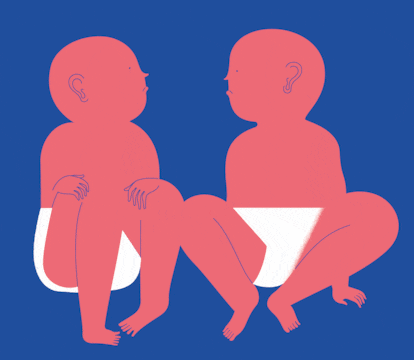Happiness is contagious, but so is a bad mood: Strategies to dodge negative emotions
The attitude and mood of the people around us affects us and can sometimes harm our well-being

We all recognize that some people give us energy, while others seem to drain us. We might have a co-worker, who is always positive and fun to share projects with and then another acquaintance, perhaps a relative, who might complain so relentlessly that one lunch feels like a lifetime.
We are social animals. Part of our evolution means we are not only predisposed to perceive the emotions of others, but also to be affected by them. Likewise, our mood will likely have an impact on others. While much of this exchange of energy takes place below the radar, we can employ certain strategies to reduce the impact of another person’s mood.
“Emotion is at the heart of success,” said Vicente del Bosque, the soccer coach who helped Spain win the World Cup in 2010. “You have to remove yourself from apathy.” The explanation is neurological. Our brain picks up on facial signals and the interactions of others to understand what is happening, to be more empathetic and to coordinate with others, as explained by the pioneer in this field, Elaine Hatfield, from Hawaii University. So, it is not surprising that if we approach a group of people in conversation, we can perceive the tone in which it is being conducted — if there’s tension and it might be better to leave or if it’s relaxed and we can join in. As we need to feel part of the group, we unconsciously imitate the emotional state to which we are exposed. So much so, that it affects our well-being.
If a friend of ours becomes happier and lives within a mile of us, they increase our possibility of being happy by 25%, according to a study carried out on 4,739 individuals from 1983 to 2003, confirming the idea that happiness is contagious. Unfortunately, this phenomenon also occurs with our darker emotions, including those that give rise to violence. Gary Slutkin, physician, epidemiologist and founder of the non-profit organization Cure Violence, treats aggression as an emotional contagion and has consequently been able to reduce it in various countries around the world.
Another investigation shows how our susceptibility to other people’s moods goes beyond the people to whom we are close and with whom we interact. A team led by a Facebook data scientist analyzed the news feeds of 680,000 Facebook users. Some were offered a diet of positive news; others, more negative. After analyzing more than three million posts, it was observed that users who had been exposed to upbeat news were more likely to post positive articles while those who had been fed the opposite, were more likely to post negative content, regardless of their audience or trajectory on Facebook.
The phenomenon has also been observed regarding the impact of what we watch on YouTube, resulting in the conclusion that the information we consume influences our mood. And, as it is beginning to be studied, the interactions we have with artificial intelligence also condition us.
But there are antidotes to contagion. Learning to take care of ourselves — making sure to get plenty of sleep and to eat healthily — helps us to resist being affected by people’s moods. Wharton professor Sigal Barsade suggests an emotional counterattack. According to her research, serenity is as powerful as negative emotions and if we train our inner calm, we will be more prepared to face unpleasant environments. Likewise, talking with the person bringing us down can be a good strategy to nudge them out of their negativity.
Another powerful technique is to distance ourselves from the situation and become an outside observer and so reduce emotional involvement, according to research by Daniel Rempala, also from Hawaii University. This strategy is especially valuable when dealing with emotionally challenging situations on an ongoing basis, as might be the case for healthcare and mental health workers.
But it is important to keep in mind that we are all emotionally contagious. If we know how to recognize negativity in ourselves, learn to manage it and perhaps even go into “quarantine” until the negativity ebbs, we will lighten our impact on others and therefore on our environment.
Sign up for our weekly newsletter to get more English-language news coverage from EL PAÍS USA Edition
Tu suscripción se está usando en otro dispositivo
¿Quieres añadir otro usuario a tu suscripción?
Si continúas leyendo en este dispositivo, no se podrá leer en el otro.
FlechaTu suscripción se está usando en otro dispositivo y solo puedes acceder a EL PAÍS desde un dispositivo a la vez.
Si quieres compartir tu cuenta, cambia tu suscripción a la modalidad Premium, así podrás añadir otro usuario. Cada uno accederá con su propia cuenta de email, lo que os permitirá personalizar vuestra experiencia en EL PAÍS.
¿Tienes una suscripción de empresa? Accede aquí para contratar más cuentas.
En el caso de no saber quién está usando tu cuenta, te recomendamos cambiar tu contraseña aquí.
Si decides continuar compartiendo tu cuenta, este mensaje se mostrará en tu dispositivo y en el de la otra persona que está usando tu cuenta de forma indefinida, afectando a tu experiencia de lectura. Puedes consultar aquí los términos y condiciones de la suscripción digital.








































